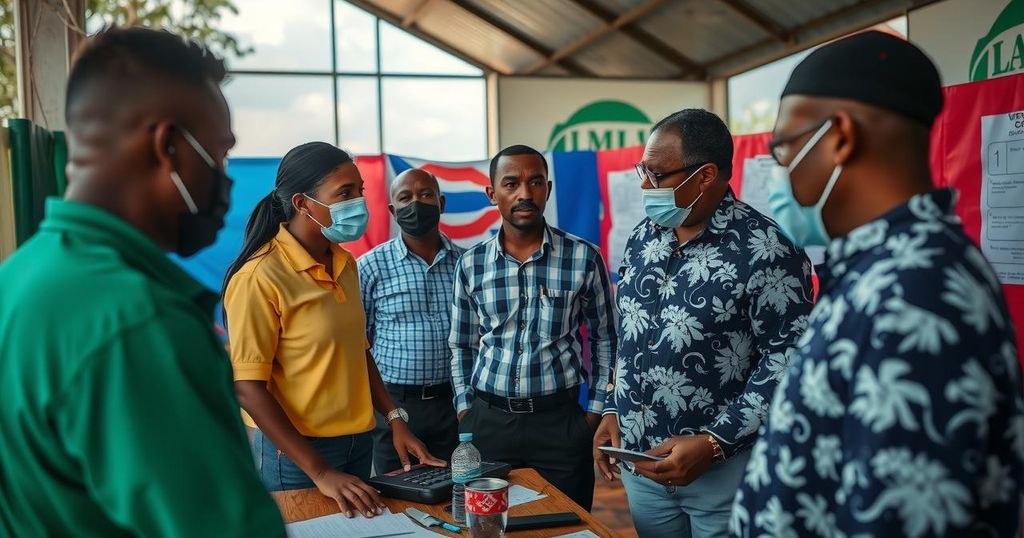Mauritius holds parliamentary elections amid a phone-tapping scandal that has raised serious concerns regarding civil liberties and governance practices. Incumbent Prime Minister Pravind Jugnauth faces a challenging reelection bid as citizens express discontent towards corruption and nepotism. Following a diplomatic breakthrough with Britain over the Chagos Islands, both main political parties assert confidence in their electoral prospects. The outcome is crucial for addressing economic stability amidst a backdrop of growing skepticism towards political leadership.
Mauritius conducted parliamentary elections on Sunday amidst heightened tensions due to a phone-tapping scandal that has raised concerns regarding civil liberties and democratic practices. Incumbent Prime Minister Pravind Jugnauth’s chances of re-election appeared threatened by the leak of secretly recorded conversations involving prominent political and media figures. The elections follow a landmark agreement between Mauritius and Britain over the sovereignty of the Chagos Islands, aiming to strengthen the nation’s political standing. Despite a government ban on social media intended to mitigate the fallout from the scandal, public discontent has cast a shadow over the electoral process, with both main political alliances expressing confidence in their respective victories, emphasizing their commitment to addressing poverty and economic concerns. The overall political climate reflects anxiety regarding both governance and economic stability, with experts noting the need for diversified economic growth and enhanced institutional integrity. The electoral landscape in Mauritius has been shaped by a long-standing legacy of political control among a few influential families, with the current election being the twelfth since independence from Britain in 1968. As the nation of approximately 1.3 million citizens prepares to select representatives for its National Assembly, observers note the dual forces of political tradition and emergent criticism against corruption and nepotism. As the results are anticipated, the broad implications of this election for the country’s governance and socio-economic trajectory remain to be seen. Polling data indicated a 70 percent turnout, highlighting the public’s engagement amid controversy. Both Prime Minister Jugnauth and former Prime Minister Ramgoolam expressed optimism for their respective parties’ outcomes, framing the elections as a pivotal juncture for the nation. Yet, the growing concerns about incumbent governance, potential electoral fraud, and the overarching priorities of economic recovery accentuate the importance of this election for Mauritius’s future.
Mauritius has a history of political stability and relative economic prosperity, having built its economy on tourism, financial services, and textile production. However, recent events have brought underlying tensions to the forefront, particularly a leaked phone-tapping scandal that has rattled the political landscape. The recent agreement with Britain regarding the Chagos Islands was anticipated to reinforce national unity, but it coincided with increasing skepticism over governance and civil liberties, casting doubt on the democratic process. Political parties are navigating a complex landscape of voter discontent and past practices of nepotism, with calls for more transparency and accountability becoming increasingly prominent among the electorate.
In conclusion, the parliamentary elections in Mauritius occur within a critical context of civil liberty concerns and questions about governance, juxtaposed with a significant diplomatic development involving the Chagos Islands. The outcome of the election is pivotal, as it may shape the future trajectory of Mauritius in addressing economic challenges and restoring public trust in democratic institutions. With high voter engagement and competitive political factions, the nation stands at a crossroads confronting both its historical governance patterns and emerging demands for reform.
Original Source: www.news-expressky.com






